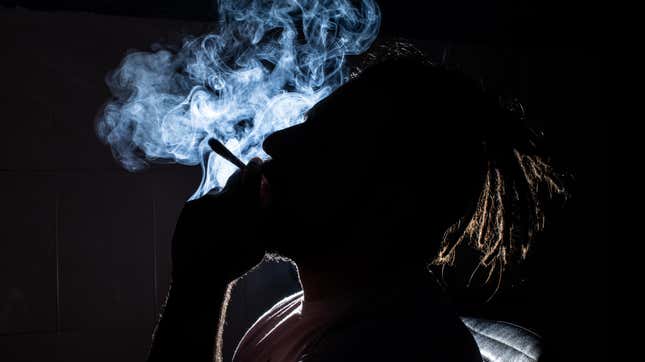
A new study that found compounds in cannabis could stop the coronavirus from infecting cells has understandably captured the internet’s attention this week. But while the findings are worth following up on, people shouldn’t get too excited yet, as the researchers are very clear that simply smoking or otherwise ingesting cannabis isn’t going to make someone covid-proof.
The study was conducted by scientists at Oregon State University and Oregon Health and Science University. They were screening for chemicals found in plants that could in theory bind to the spike protein of the SARS-CoV-2 coronavirus, thus inhibiting its ability to infect our cells.
The team identified two such potential compounds from the hemp plant (Cannabis sativa): cannabigerolic acid, or CBGA, and cannabidiolic acid, or CBDA. They then ran further tests in the lab and found that both cannabinoids did indeed seem to prevent the coronavirus from infecting human cells normally vulnerable to it. What’s more, the compounds appeared to work equally well against the Alpha and Beta variants of the coronavirus.
“Orally bioavailable and with a long history of safe human use, these cannabinoids, isolated or in hemp extracts, have the potential to prevent as well as treat infection by SARS-CoV-2,” the authors wrote in their paper, published Tuesday in the Journal of Natural Products.
Finding a way to inhibit the coronavirus, even for a short time, is a valuable goal, and one that plenty of other scientists are working on. These treatments, for instance, could be used to protect immunocompromised people in high-risk situations, such as during an active outbreak. So this research should absolutely be pursued further.
But experiments in a petri dish are only the very start of the research process. For every promising concoction that goes on to become an effective drug or vaccine, there are many more that flounder and fail to show any real results in animal or human testing. This has happened during the covid-19 pandemic, with drugs like hydroxychloroquine seemingly effective at stopping the coronavirus in the lab but not in real-life patients. Of course, this doesn’t mean that CBGA and CBDA will necessarily fail—it just means that we should temper our expectations for any experimental drug.
Even if these compounds did work against covid-19, there’s no chance you would get their benefits from smoking, vaping, or taking an edible. Both CBGA and CBDA are precursors to CBG and CBD, which are found in the cannabis that people take recreationally or medicinally. But those cannabinoids didn’t show the same strong inhibiting effect in the researchers’ tests. So you would still have to use hemp or hemp-based extracts, which don’t get you high, to obtain any theoretical protective boost. And even then, it’s unclear how you would maintain a high enough level of those compounds in your respiratory tract to have the effect seen in the lab.
Interestingly enough, the team did identify another cannabinoid that might bind to the virus: tetrahydrocannabinolic acid (THCA-A), which is a precursor to THC, the primary psychoactive ingredient in cannabis. Because THCA-A is a controlled substance, though, the team didn’t have enough of it to test how well it could inhibit the virus. Don’t get your hopes up too high there, either, though. THCA-A isn’t psychoactive, and the way we get THC in the first place is by heating and drying fresh cannabis leaves, breaking down the THCA-A. And as with CBD and CBG, the team found little evidence that THC itself could effectively inhibit the coronavirus.
These findings are definitely intriguing, and the fact that the researchers weren’t able to keep studying THCA-A is yet another reason why our federal government’s stance on cannabis is antiquated and counterproductive. But although weed may be good for a lot of things, it’s sadly not a pandemic cure.